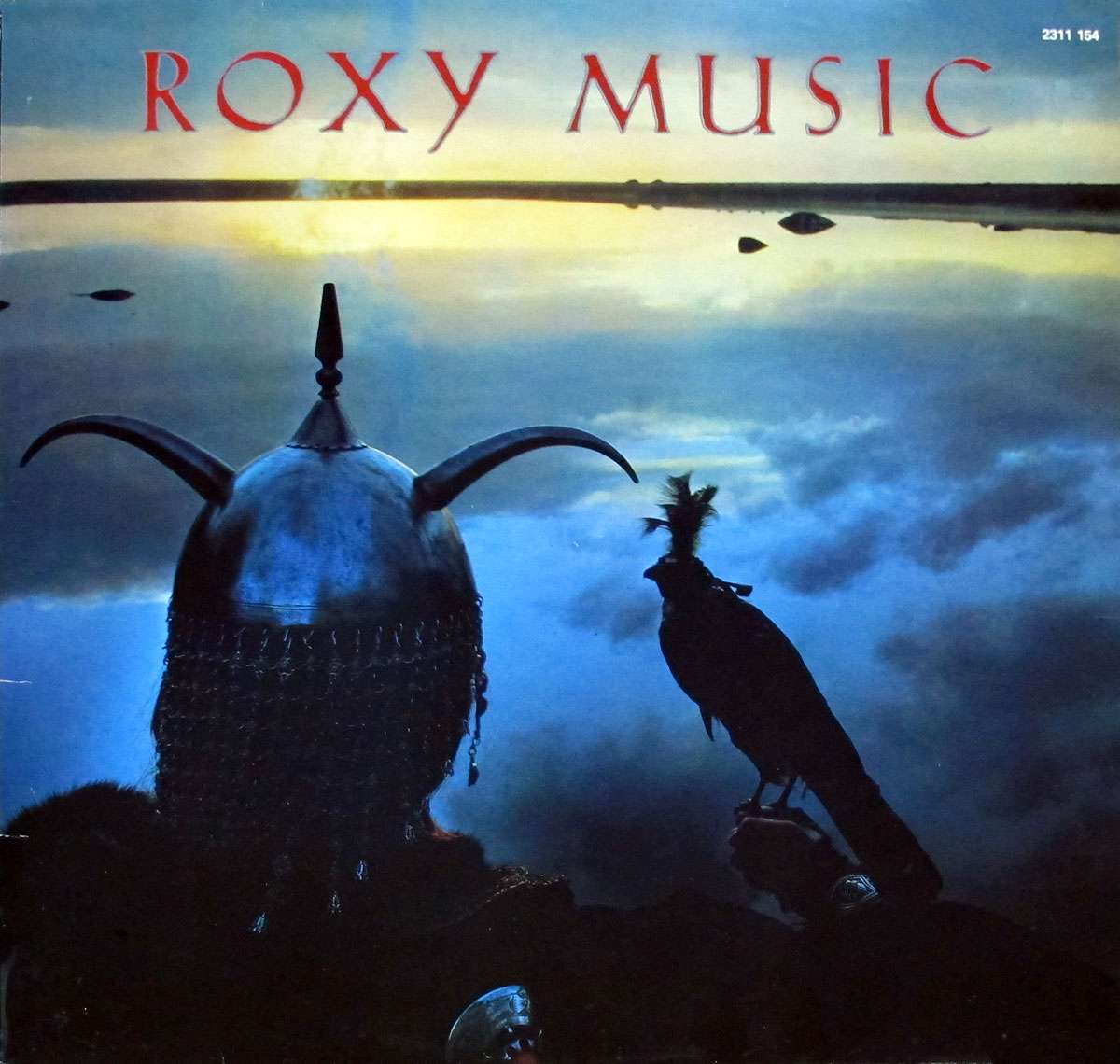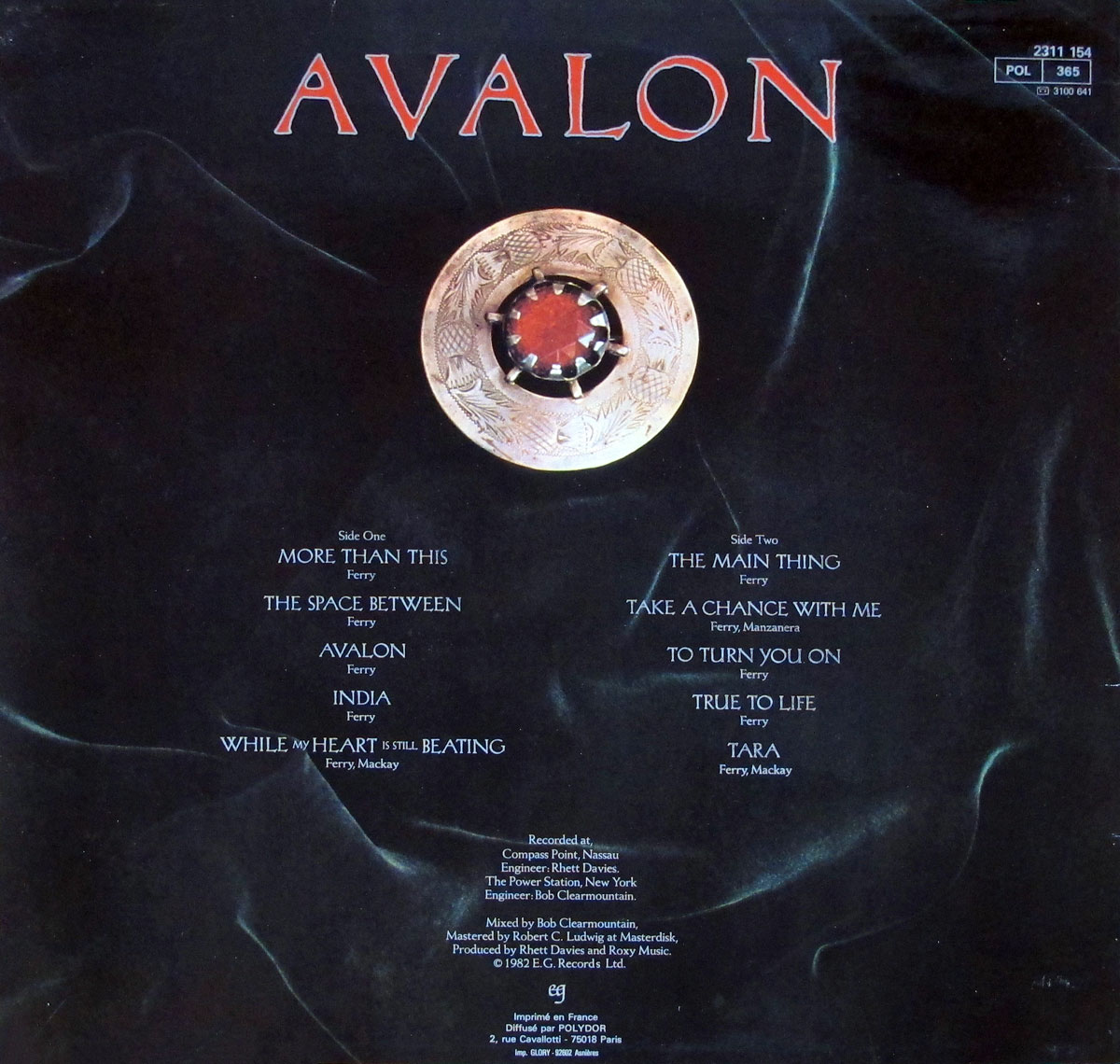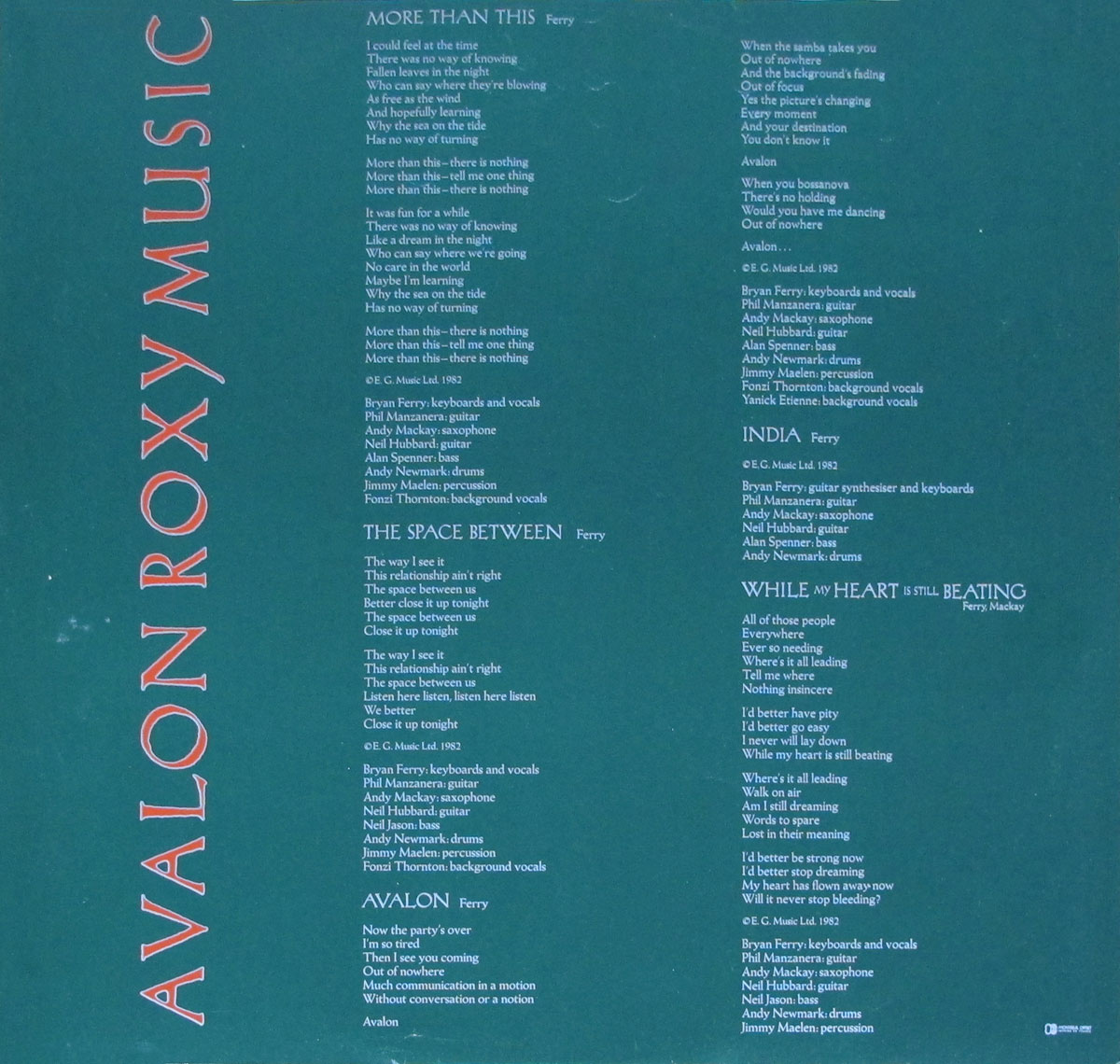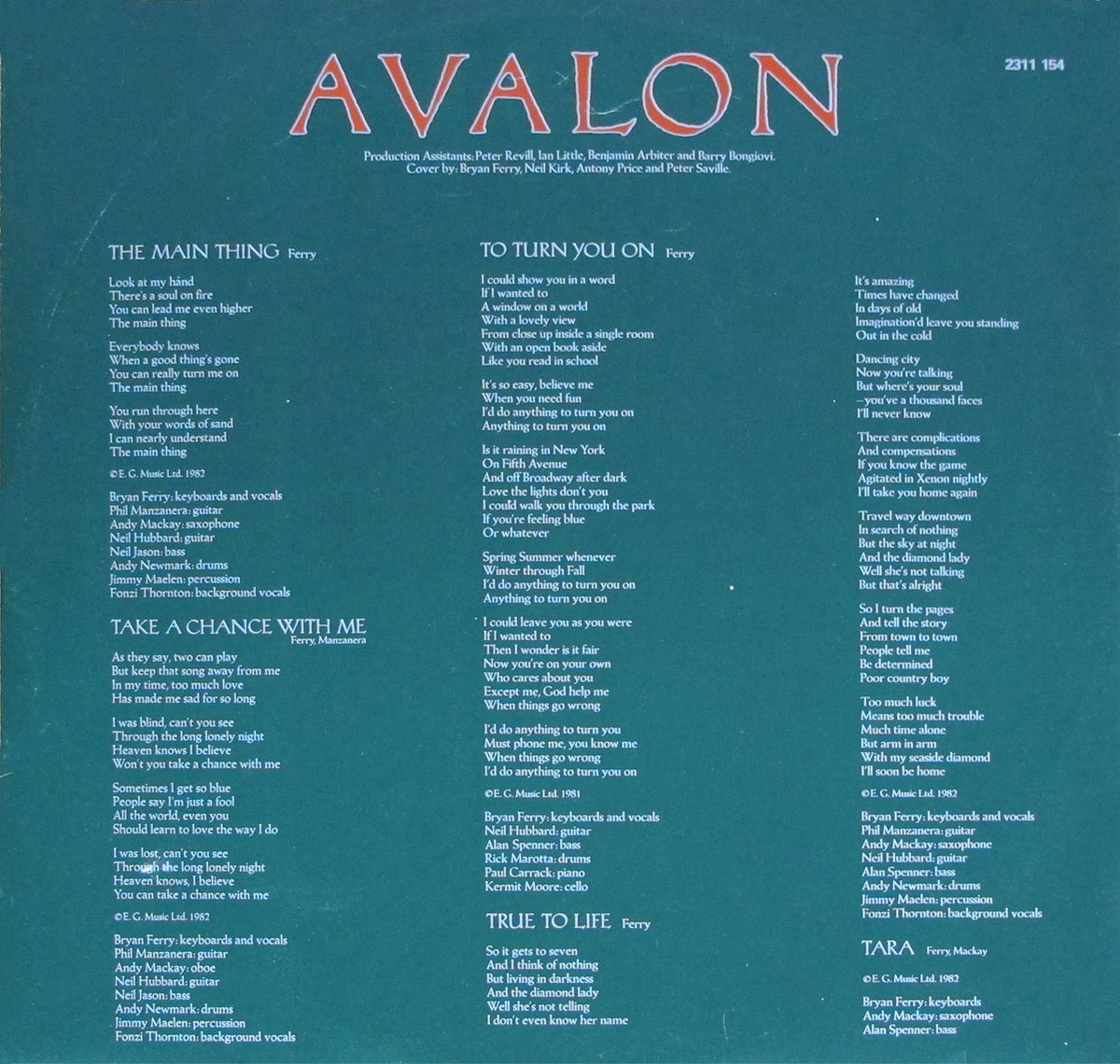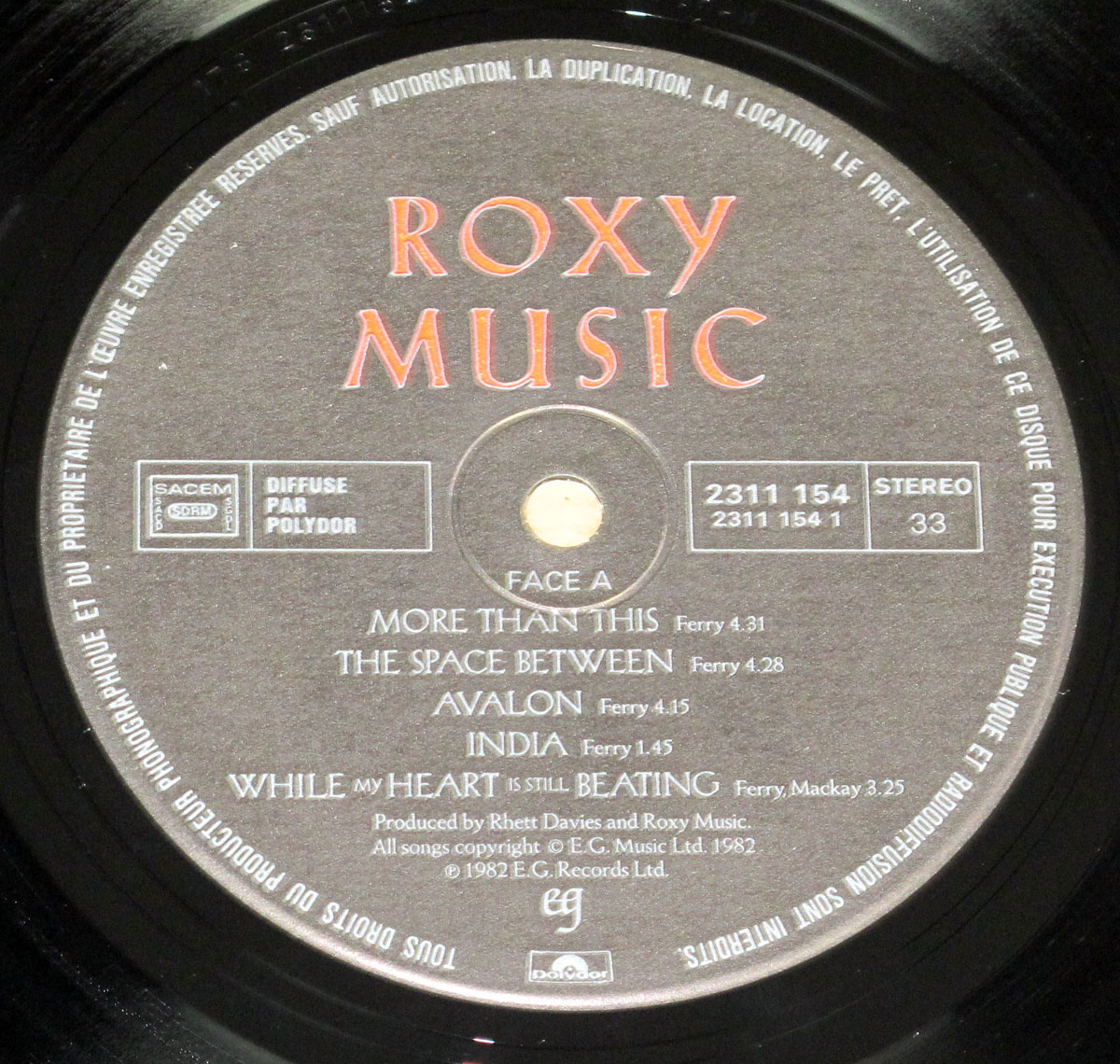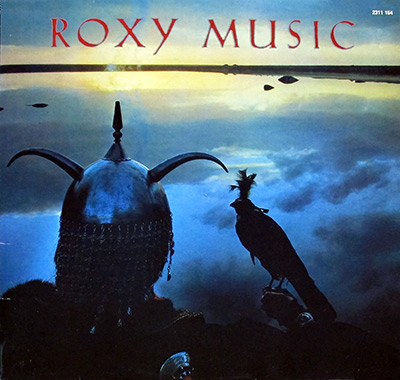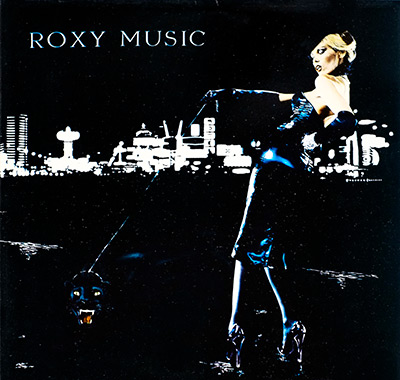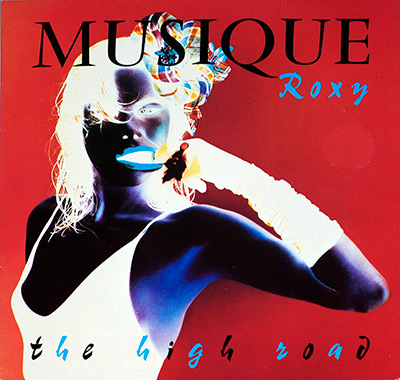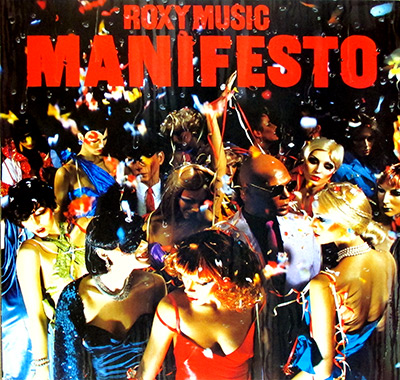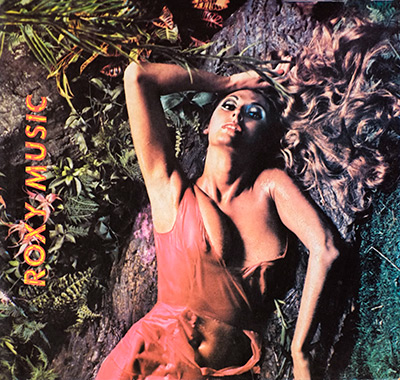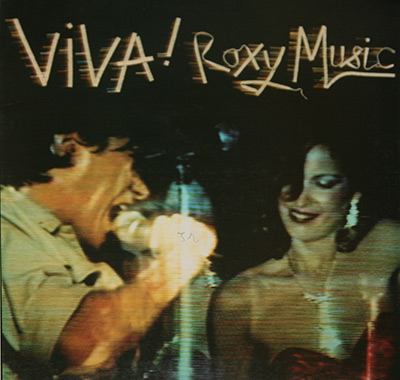Bob Clearmountain, Bob Clearmountain is the behind-the-glass ringmaster who made rock records hit like polished steel. I first clock him in the late 1970s, engineering and mixing for sharp-edged art-rock and new-wave sessions (Roxy Music, The Pretenders). By the early-to-mid 1980s he is the go-to for arena-scale muscle: mixing the Rolling Stones and Bruce Springsteen projects, where the drums punch and the guitars stay wide without turning to fuzz. Across the 1980s into the 1990s he helps Bryan Adams translate bar-room bite into radio-sized thunder, then keeps busy through the 1990s and 2000s remixing and mixing for major catalogs and new cuts alike. His signature is clarity with attitude: every chorus lifts, nothing caves in.
"Avalon" Album Description:
Historical Context: 1982 in the World and Music Scene
By 1982, the world was amid a technological and cultural shiftÑpersonal computing was emerging, MTV was transforming how audiences consumed music, and the glitzy excess of the late '70s was giving way to a more polished maturity. In rock and pop, the lean-back, slick sounds of sophisti-pop and adult-oriented rock were gaining traction.
Roxy Music's Avalon arrived as a culmination of that movementÑa sophisticated, atmospheric album aligning with the eraÕs move toward sleek production. While contemporaries like Duran Duran, ABC, and The Cars offered glossy pop with danceable hooks, Avalon stood apart for its subdued elegance, resonating with listeners seeking depth beneath the sheen.
Roxy MusicÕs Musical Genre and Peers
Roxy MusicÕs style evolved from early art-rock and glam into what is often classified as sophisti-pop or art-popÑgenres characterized by tasteful production, emotional restraint, and lush soundscapes. Their early work, infused with avant-garde flair (thanks to Brian Eno), influenced punk and new wave acts. By the early '80s, however, their output embodied a refined, adult sensibility.
While bands like ABC and Duran Duran embraced stylish new wave, incorporating funk and dance elements, Roxy Music deployed restraint. Avalon shares more with ambient and lounge-inflected synth-pop than the high-energy synth-driven pop dominating charts, marking it as an elegant outlier.
Musical Exploration on Avalon
The album unfolds like a dream, with atmospheric textures, spacious arrangements, and introspective moods. ItÕs as if the songs are quiet nocturnal reflectionsÑambient, romantic, and haunting. The title trackÕs late-minute vocal by Haitian singer Yanick ƒtienneÑwhom Bryan Ferry literally heard singing next doorÑelevates the composition to ethereal glory.
Ferry envisioned the tracks as Òshort storiesÓ or musical poemsÑtightly crafted narratives woven into a cohesive sonic tapestry. The mood is wistful, cinematic, and deeply emotionalÑoffering depth within minimalism.
Key Contributors Behind the Recording
Bryan Ferry steered the artistic visionÑhis trademarks of suave restraint, meticulous lyricism, and ambient elegance are central. Alongside him, Rhett Davies co-produced, helping sculpt the albumÕs transparent yet emotionally rich production.
Yanick ƒtienne offered the haunting backing vocal on ÒAvalon,Ó a spontaneous and unforgettable touch. Engineers like Bob Clearmountain and mastering by Robert C. Ludwig at Masterdisk polished the sound to crystalline finishÑeach technical contributor essential to the albumÕs graceful sheen.
Band Line-Up and Historical Evolution
Roxy Music formed in 1970 in England, with founding members Bryan Ferry, Graham Simpson (bass), Andy Mackay (sax/oboe), Brian Eno (synth), Roger Bunn (guitar), and Dexter Lloyd (drums). By the time of their debut in 1972, lineup changes had already occurredÑSimpson, Bunn, and Lloyd departed, replaced by Phil Manzanera (guitar) and Paul Thompson (drums). Brian Eno left in 1973, replaced by Eddie Jobson.
Throughout the '70s, Roxy MusicÕs sound evolved through several phases: art-rock glam, sleek pop, and eventually, adult-oriented sophistication. Following a break in 1976, they reformed in 1978 and released Manifesto, then Flesh + Blood in 1980. By the time of Avalon (1982), core members were Ferry, Mackay, and Manzanera, supported by session musicians.
Controversies and Reactions
Critically, some longtime fans balked at the albumÕs subdued directionÑlambasting it as Òhair salon music,Ó accusing the band of trading adventurous eccentricity for salon-smooth polish. Yet, over time, many came to revere its emotional depth and maturity.
The album also inadvertently signaled Roxy Music's farewell: after the Avalon world tour, internal tensions and artistic exhaustion prompted guitarist Phil Manzanera and saxophonist Andy Mackay to depart, effectively dissolving the band in 1983. The elegiac lyric ÒNow the partyÕs overÉÓ felt propheticÑthe close of both the album and the bandÕs studio chapter.
